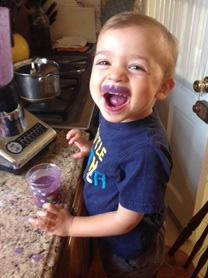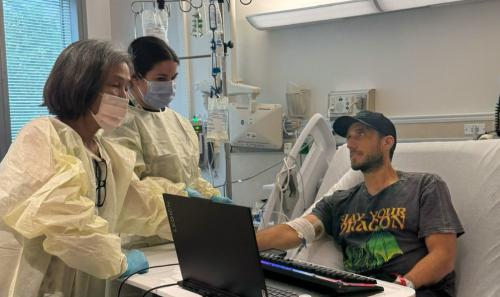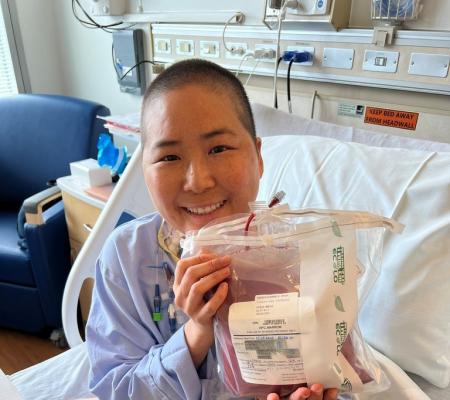
-
Understanding primary immunodeficiency (PI)

Understanding PI
The more you understand about primary immunodeficiency (PI), the better you can live with the disease or support others in your life with PI. Learn more about PI, including the various diagnoses and treatment options.
-
Living with PI
-
Addressing mental health
-
Explaining your diagnosis
- General care
- Get support
- For parents and guardians
-
Managing workplace issues
- Navigating insurance
-
Traveling safely

Living with PI
Living with primary immunodeficiency (PI) can be challenging, but you’re not alone—many people with PI lead full and active lives. With the right support and resources, you can, too.
-
Addressing mental health
-
Get involved

Get involved
Be a hero for those with PI. Change lives by promoting primary immunodeficiency (PI) awareness and taking action in your community through advocacy, donating, volunteering, or fundraising.
-
Advancing research and clinical care
-
Research Grant Program
-
Consulting immunologist
-
Diagnosing PI
-
Getting prior authorization
-
Clinician education
-
Survey research
-
Participating in clinical trials

Advancing research and clinical care
Whether you’re a clinician, researcher, or an individual with primary immunodeficiency (PI), IDF has resources to help you advance the field. Get details on surveys, grants, and clinical trials.
-
Research Grant Program

When my son Sebastian was born on May 1, 2012, everything seemed perfect. We brought him home on May 3, and we celebrated by having "A New Big Sister Party" for our daughter who was almost four. It was also my birthday, and I had just been given the most precious gift: our beautiful baby boy. I felt so happy for our daughter especially. She overflowed with pride and love for her new baby brother. I look back on pictures of that day, and her smile is one of the biggest and truest that I've ever captured.
All was well for the first couple of months. Then, Sebastian developed a prolonged fever, followed by two infections that required stays in the hospital. While doctors assured us that "these things can happen" and “not to worry,” my husband and I felt that a second opinion was warranted. (Think Zebra!)
We saw an immunologist at Weill Cornell/New York Presbyterian Hospital who ran some tests. Nothing could have prepared us for what happened next. She called us into her office and gave us the news: Sebastian had chronic granulomatous disease (CGD). As many of you can relate, my life changed that day. I had never heard of the condition before, but at that moment, I began "living with CGD."
Thankfully, our immunologist recommended that we get in touch with IDF. I called the number that she gave me, and a representative immediately put me in touch with a fellow mom in the CGD community named Barbara. I will never forget the sound of her calm and friendly voice, as she talked about life with her son. He was in college now, she said. Things were pretty “normal.”
After speaking with Barbara, I immediately had hope.
Since then, apart from a few hospitalizations for minor infections, things have been pretty “normal” for us as well. While we remain cautious, Sebastian is like most rambunctious two-year-old boys; he is always “on the go.” He loves to play soccer, go on train rides, swim, and tear around the house with his big sister. He also enjoys making healthy smoothies each day for breakfast. He’s quite adept at putting blueberries in the blender. He’s even better at showing off his purple smoothie mustache for the camera, as you can see.
This is all to reinforce what many of you know: children with CGD have immune systems that are almost "perfect," and the medications available today can help fill the gaps. As a result, patients of all ages can lead healthy and productive lives.
However, we also understand that the long-term future is uncertain. While we treasure each moment that we have, we must be mindful of tomorrow. That is why this site is so important to increase awareness, education, support, and a sense of “being connected” to the CGD community. Although CGD is a rare condition, we are not alone.
Thank you,
Felicia
Related resources

Man with X-linked hyper IgM first-ever to receive novel gene therapy

Pharmacist with CVID receives bone marrow transplant

Undiagnosed: Reuben & Sherri Johnson on CGD, chronic illness, and the fight for healthcare
Sign up for updates from IDF
Receive news and helpful resources to your cell phone or inbox. You can change or cancel your subscription at any time.





The Immune Deficiency Foundation improves the diagnosis, treatment, and quality of life for every person affected by primary immunodeficiency.
We foster a community that is connected, engaged, and empowered through advocacy, education, and research.
Combined Charity Campaign | CFC# 66309

